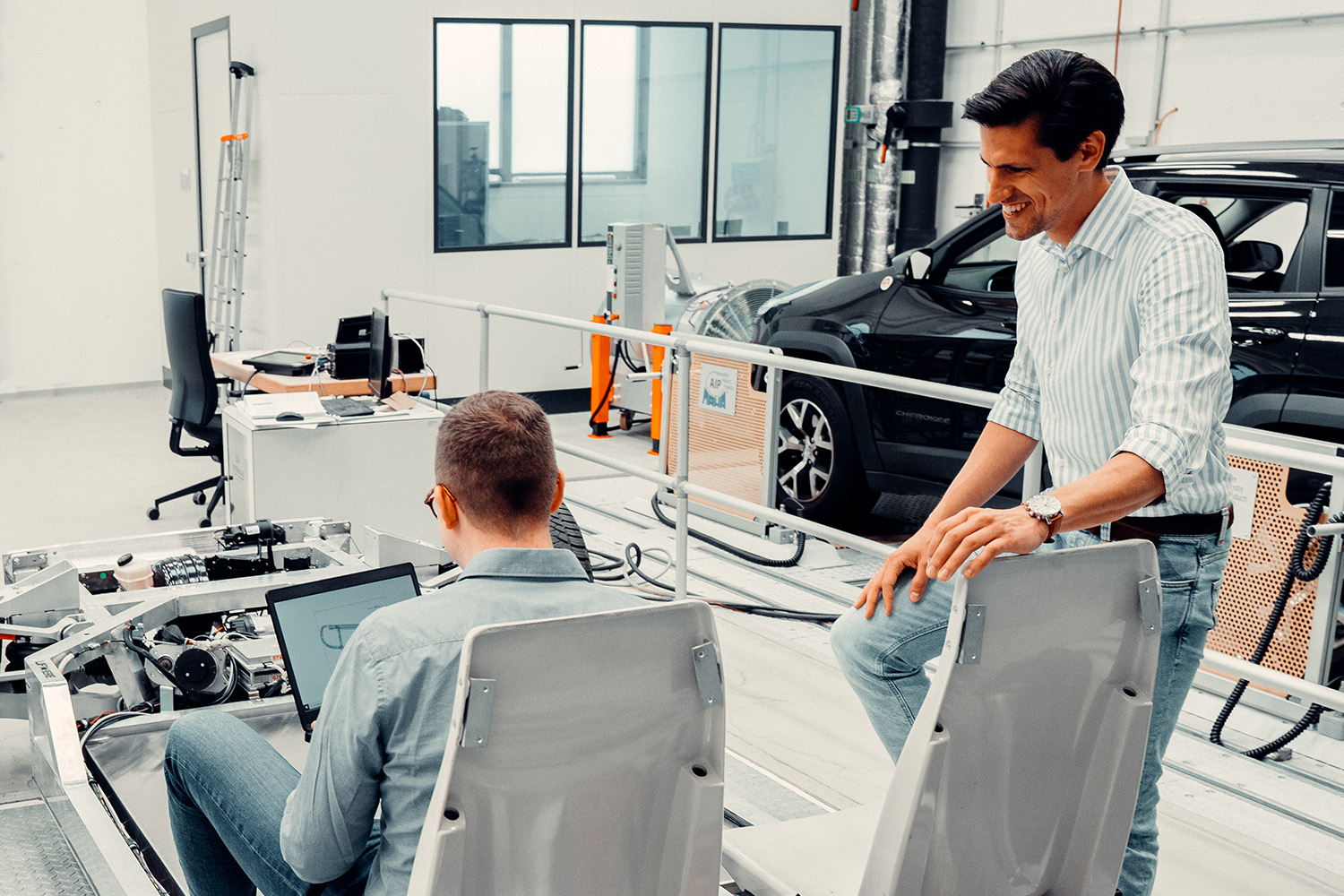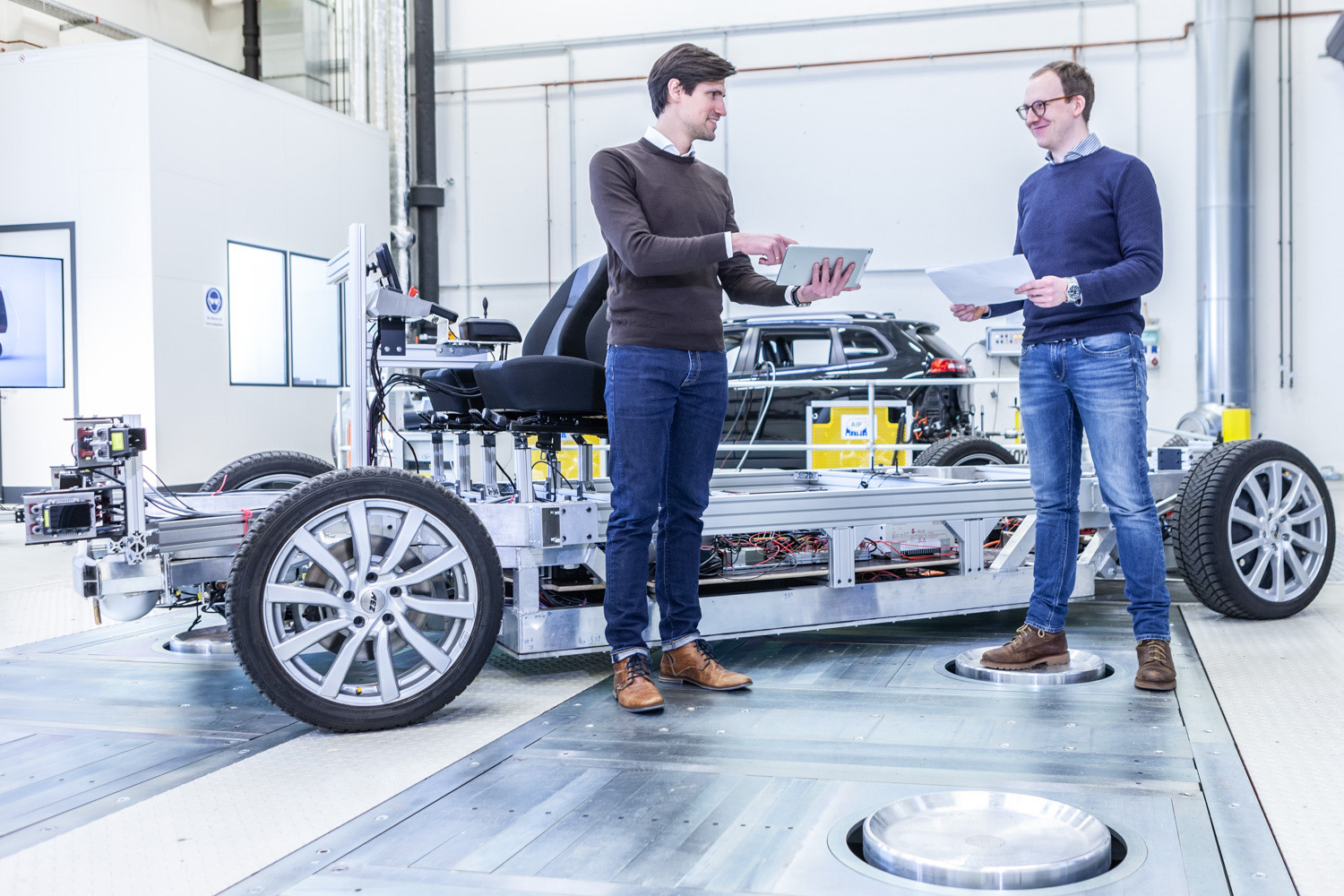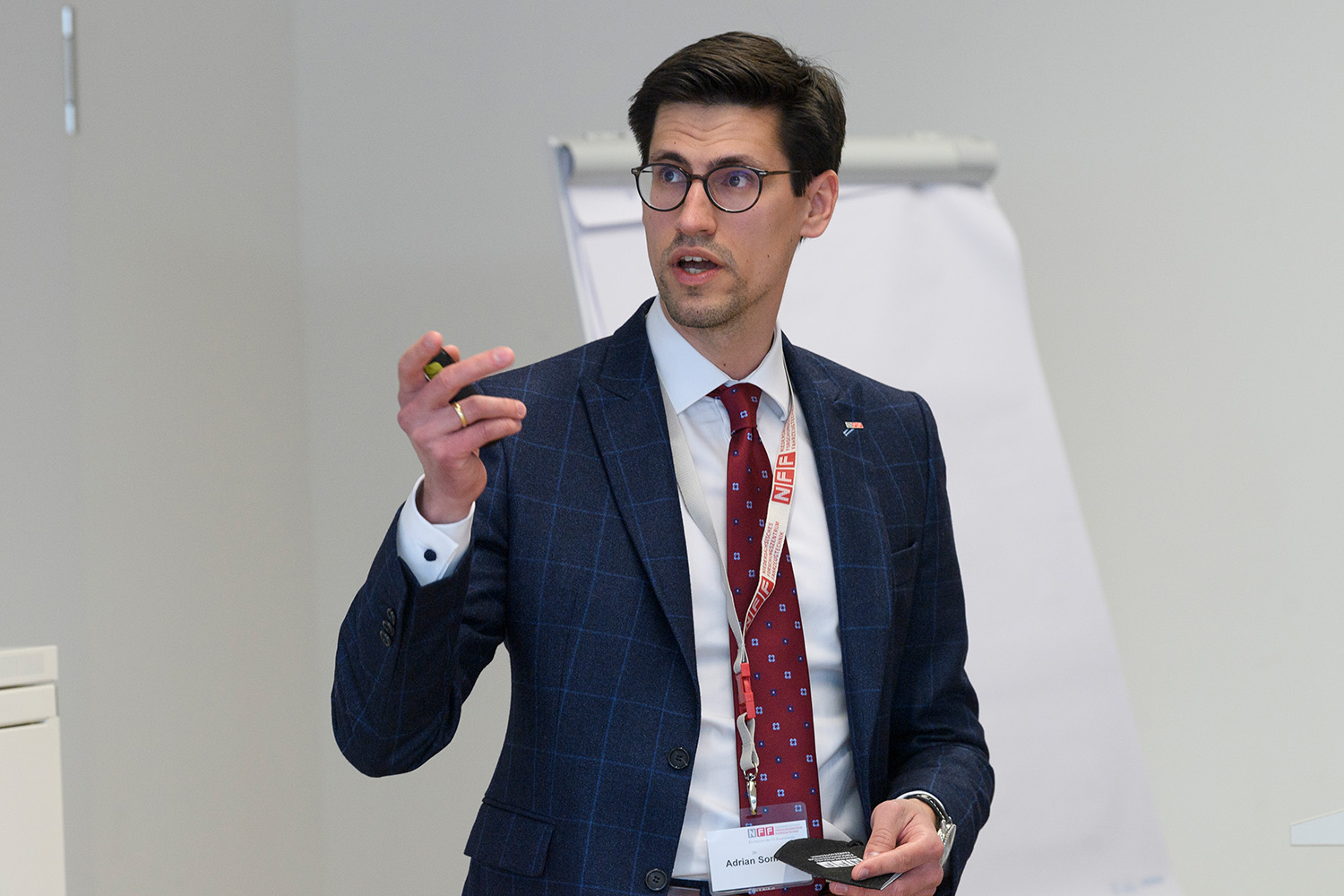“We want to make the best possible use of member competencies” An interview with Dr Adrian Sonka, new Managing Director of the NFF
Dr Adrian Sonka has been in charge of the Automotive Research Centre Niedersachsen since January 2022. The NFF, as it is called for short, is a cooperation and networking platform for joint mobility research between industry and science. We met Dr Adrian Sonka, a man of research, and asked him which mobility topics are at the top of the agenda.
Dr Sonka, what will be your first steps as NFF Managing Director?
To start, I want to get a picture of the whole centre. To do this, I am meeting with the members and the boards. What are the wishes and needs of the members and institutes? The exchange with other centres such as the Battery LabFactory (BLB) and the Open Hybrid LabFactory Wolfsburg (OHLF) is also part of it. I have made it my task to set up concrete project development offers for the members, such as strategy workshops. I also want to strengthen cooperation between the research fields within the NFF. My main concern is that the members receive added value from the centre.
You are an active researcher yourself. How might that affect the management of the centre?
On the one hand, I see myself as a classic managing director who takes care of the budget and similar tasks. On the other hand – and this is what I see as the focus of my work – I want to bring a strong scientific character to the work and provide valuable impulses in the process. This requires close coordination with the Board Spokesperson, Professor Thomas Vietor, as well as the Board members who bear the scientific responsibility of the research fields they represent.
Through my work at the Institute of Automotive Engineering as a research associate and later as a team leader and as Managing Director of the NFF in the EIT Urban Mobility, I was able to gain a lot of experience in national and international project acquisition and research funding. I will contribute this experience and also a large network of contacts to project sponsors and partners.
This is a great advantage, but also involves a conflict of goals: We are maintaining a long-term roadmap that must be measured against scientific criteria and goals such as internationalisation and excellence. Nevertheless, members should be able to profit from the NFF through concrete benefits. I am very happy to be able to lead an office with such efficient colleagues. Our goal is to make the best possible use of our members’ competencies in order to achieve the best possible key scientific indicators.

Dr Adrian Sonka at the PLUTO mobile platform. Photo credit: ©dpd/vanassist
What fields of action do you see at the NFF today?
In close coordination with the Board, three areas have emerged: In the area of coordination and strategy, the focus is on industry cooperation, internal partnering, strategic consulting and mentoring for students and founders. The latter, the promotion of start-ups, plays a particularly important role in technology transfer. On the one hand, this brings new projects to the NFF and makes it possible to further expand the direct line to industry.
In the area of networking, I see cooperation with SMEs, municipal partners and competence clusters such as the FutureMobilityHub, establishing contact with project sponsors and funding agencies as well as using existing networks to gain access to various funding lines and expand the NFF’s position at state, federal and European level. We also want to further strengthen the cooperation with our Advisory Board, which is chaired by Dr Axel Heinrich (Volkswagen Electrics and Electronics Development) and which supports us very well in this task.
Thirdly, it is about visibility: for example, we want to provide our researchers with an overview of national and international research projects, stimulate new funding opportunities, promote publications in high-ranking journals and sharpen our communication strategy.
What technological direction will the NFF take in the next few years?
As the NFF, we continue to be technology-neutral. That means we do not want to commit ourselves to one technology and research it, but rather examine several approaches to solving a problem. In emission-free mobility, for example, hydrogen and battery-powered vehicles remain equally important. In addition to zero-emission mobility, automated and connected driving is another focus. The primary goal here is to bring the technology to market maturity. The automated vehicles are validated and the safety redundancies are tested in living laboratories. To this end, we are in close exchange with TÜV and other inspection institutions. Alternative mobility concepts are also on the agenda: for example, the NFF is working on a shuttle based on the modular PLUTO platform that can be used for passenger transport and logistics as well as a combination of both.
In all our developments, we cannot ignore the customer perspective and market requirements. We want to broaden our engineering perspective, for example through concepts such as “customer co-creation”, i.e. the having customers participate in the development through surveys, in VR labs, living labs and the use of prototypes.
Digitisation is another major NFF research field, even though as a theme it stands at the cross section of virtually all of our other research fields. To emphasise its importance, we will work more closely with computer science in research, expand the hardware infrastructure and focus more on big data.

Dr Adrian Sonka (l.) with Thorben Hegerhorst from the Institute of Automotive Engineering (IfF) at the PLUTO mobility platform in the NFF’s technical centre. Photo credit: ©NFF/Keppel
What role will TU core topics such as internationalisation, digitalisation and knowledge transfer play?
As far as internationalisation is concerned, we are already well on the way and will of course continue to push this. We have a branch in Shanghai at Tongji University and cooperations with Japan (Tokyo University of Agriculture and Technology) and the USA (University of Michigan), among others. Through our membership in the EIT Urban Mobility, we have access to a broad network in Europe.
In digitalisation, we have positioned ourselves with a research field that was founded and restructured specifically for this purpose. We also benefit greatly from the “Zukunftslabor Mobilität” (Mobility Lab of the Future) and, in the future, potentially from the European Digital Innovation Hub (EDIH), which will support the digital transformation.
Technology transfer is also being driven forward. To this end, we are working closely with iTUBS and the Entrepreneurship Hub. Professor Reza Asghari, head of the HUB, became an NFF member this year.
What exactly is on the agenda for 2022?
We will be launching various new projects that we are working on as part of a grant from the EIT Urban Mobility (major project of the European Institute of Innovation and Technology). One example is the LogiSmile project, which aims to improve urban logistics with an autonomous shuttle. By the end of 2024, a passenger shuttle on Hermann-Blenk-Strasse is also scheduled to go into testing under real conditions.
Ongoing projects include the 5G-LabBraWo (setting up an open 5G real laboratory in the Braunschweig-Wolfsburg region), the Zukunftslabor Mobilität (digitalisation in mobility, together with DLR) and the greenBatt battery research cluster (sustainable electromobility).

